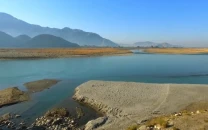Reko Diq arbitration: Can there be a settlement?
We will have to wait and see if there will be one winner in Reko Diq case or if both parties will go for a settlement

The writer is the founder and president of the Center for International Investment and Commercial Arbitration
Almost two years on, there seems to be the realisation on the government’s part of its international contractual and treaty obligations and the potentially ominous implications of a failure to honour these both from the standpoint of foreign investment as well as Pakistan’s image in the international community. The important question now is whether or not the TCC would agree to settle and on what terms. Based on the available information, not surprisingly, the TCC is not too keen on settling this matter partly because the arbitral tribunal is expected to render an award in its favour of, by one estimate, $10 billion. Pakistan’s efforts to reach a settlement reinforce this view as it signals its expectation of an unfavourable decision.
While Pakistan’s motivation to settle is understandable given its ostensibly weaker position, why would the TCC want to settle? If it is expecting a favourable award of a substantial amount, why would it agree to settle for a lower amount? To answer these questions, we need to consider the relevant factors that parties to international arbitration proceedings take into account in their decisions to reach a settlement after arbitration proceedings have been initiated. These factors include the costs of arbitration and the likely duration of the proceedings, the strength or weakness of the party’s case, concerns about the likely place of enforcement and how lengthy and difficult enforcement could be and the possible inadequacy of the assets of the opposing party. The TCC would certainly consider some, if not all, of these factors before taking a final decision on whether to reach a settlement with Pakistan.
In terms of the costs of arbitration, in view of the expected amount of the arbitral award, these costs would just be a fraction of the award and may not be a strong consideration for the TCC to reach a settlement. Regarding the likely place of enforcement, that is, Pakistan and any other countries where its government owns commercial assets, the TCC might be concerned about how much time it would take and whether the award could be fully or partially enforced. This is primarily because there will most likely be stiff resistance to enforcement of the arbitral award by Pakistani courts, especially one related to Pakistan’s natural resources, a subject that evokes patriotic and nationalistic fervour.
Although Pakistan has enacted the New York Convention and the ICSID convention, enforcement of foreign arbitral awards may still not be considered straightforward as our justice system may resort to the few narrow exceptions in these laws as grounds for refusing enforcement. Ironically, this xenophobic approach may well turn out to be an advantage for Pakistan as it could motivate the TCC to come to the negotiating table.
One of the objectives of arbitration proceedings is facilitating a consensual resolution of the dispute and statistics show that a majority of parties enter into arbitration proceedings with the hope of reaching an amicable settlement. Furthermore, an amicable settlement with the support of the arbitral tribunal is generally considered more favourable for both parties than concluding the proceedings by award, where one party wins and the other loses. We will have to wait and see if there will be one winner in the Reko Diq case or if both parties will go for the presumably win-win option by reaching a settlement.
Published in The Express Tribune, August 7th, 2015.
Like Opinion & Editorial on Facebook, follow @ETOpEd on Twitter to receive all updates on all our daily pieces.



















COMMENTS
Comments are moderated and generally will be posted if they are on-topic and not abusive.
For more information, please see our Comments FAQ